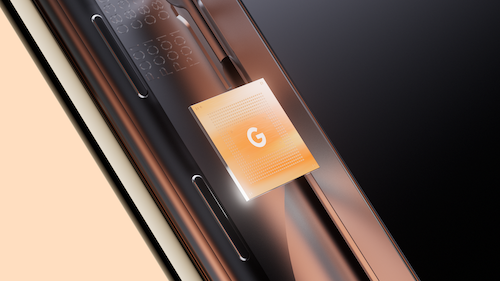Although Google officially announced its Pixel 5a would launch in the US and Japan only, the world has heard from Google about its upcoming Pixel 6 and Pixel 6 Pro smartphones.
The announcement comes from Google's Senior VP of Devices and Services, Rick Osterloh, at the official Google blog.
Osterloh started by noting the first Pixel phone, which was far from Google's first own-branded Android, launched in 2016, and that the company had used the Pixel line to introduce features like HDR+ and Night Sight, as well as AI smarts, Google Assistant and more.
However, Osterloh also says that "computing limitations" have been run into, which forced Google to create "a technology platform built for mobile that enabled us to bring our most innovative AI and machine learning (ML) to our Pixel users,", which has meant Google's own SoC or System on a Chip, and that it is finally "almost here."
Dubbed Tensor, it is Google's "first custom-built SoC specifically for Pixel phones, and it will power the Pixel 6 and Pixel 6 Pro later this fall."
We'll have to wait until the launch for all of the full details, features, specs, pricing and availability, but the blog post gives a sneak peek.
We're told "these new phones redefine what it means to be a Pixel," from new design and finishes to the upgraded Android 12 operating system, with a new rear camera system that appears to show at least two traditional lenses, and what might be a squarish periscope lens per Huawei's phones, although that squarish blur might be something else, like a ToF sensor or LIDAR, but we don't yet know.

Osterloh said: "Tensor was built for how people use their phones today and how people will use them in the future. As more and more features are powered by AI and ML it’s not simply about adding more computing resources, it’s about using that ML to unlock specific experiences for our Pixel users.
"The team that designed our silicon wanted to make Pixel even more capable. For example, with Tensor we thought about every piece of the chip and customized it to run Google's computational photography models. For users, this means entirely new features, plus improvements to existing ones.
"Tensor enables us to make the Google phones we’ve always envisioned — phones that keep getting better, while tapping the most powerful parts of Google, all in a highly personalized experience. And with Tensor’s new security core and Titan M2, Pixel 6 will have the most layers of hardware security in any phone**.
"You’ll see this in everything from the completely revamped camera system to speech recognition and much more. So whether you're trying to capture that family photo when your kids won’t stand still, or communicate with a relative in another language, Pixel will be there — and it will be more helpful than ever. We look forward to sharing more about Pixel 6 and Pixel 6 Pro later this year."
Gizmodo's Sam Rutherford interviewed Rick Osterloh, who provided more detail, which you can read here.
My take? Well, Apple has succeeded incredibly well with its own A-series and now M-series processors, so it only makes sense for Google to want to take better control over its own destiny with its own custom processors, too.
We don't yet know whether TSMC or someone else will be making the Tensor processor, but they are the most likely candidate. Pixel phones are usually soundly outsold by Android competitors and iPhones, but clearly Google hopes the new Pixel 6 range will really resonate with consumers, so we'll just have to wait and see how well they do.
If the chip truly is as powerful as Google suggests, who knows where else the Tensor chip will emerge? Might Google make a tablet again? Could the tensor chip power a smartwatch? A future ChromeCast with Google TV? Google-branded Chromebooks?
All will be revealed in a couple of months, most likely, and the world - and Google's competitors - will be watching.
Google's Tensor and Pixel 6/6 Pro blog post is here.
